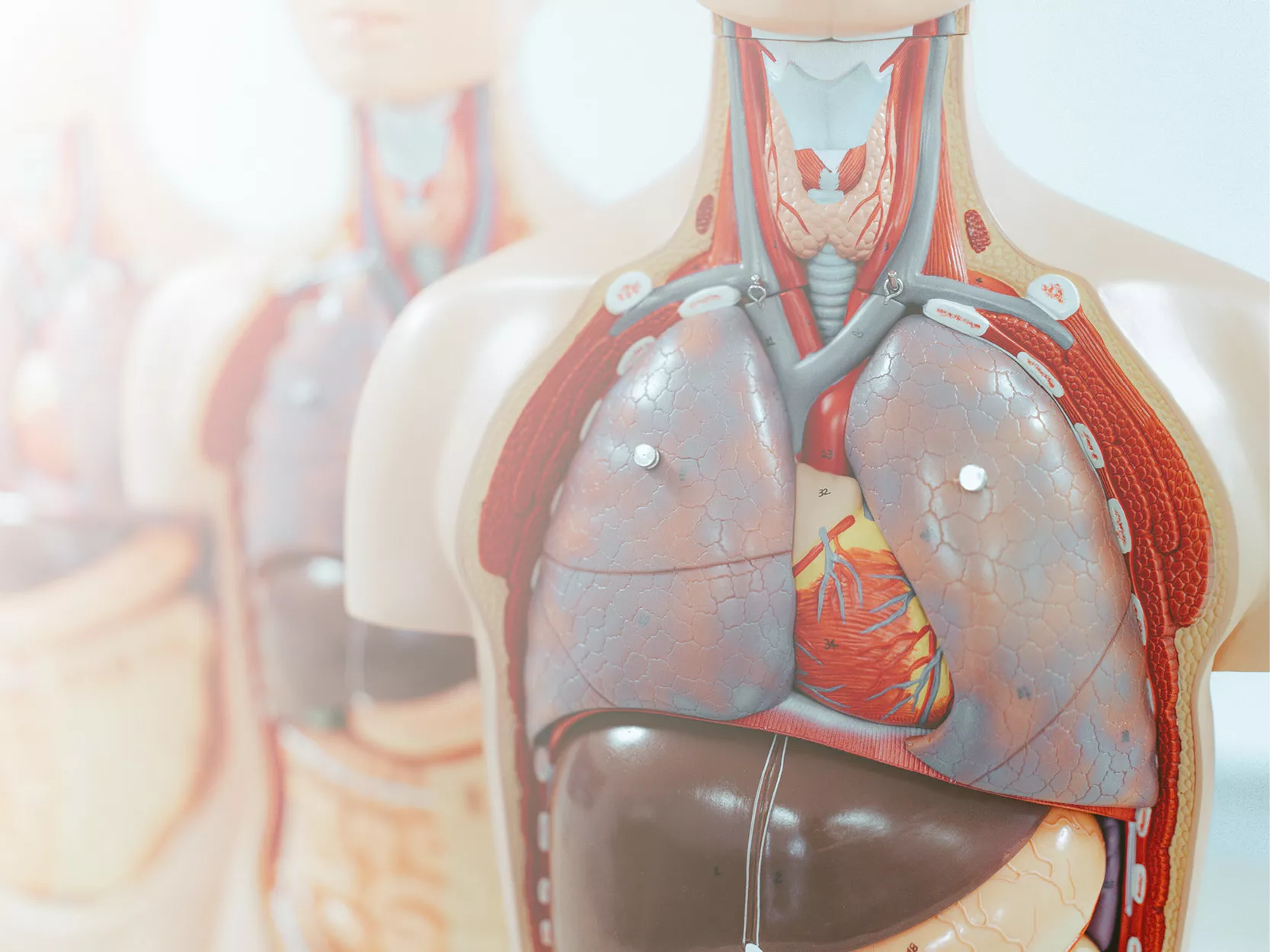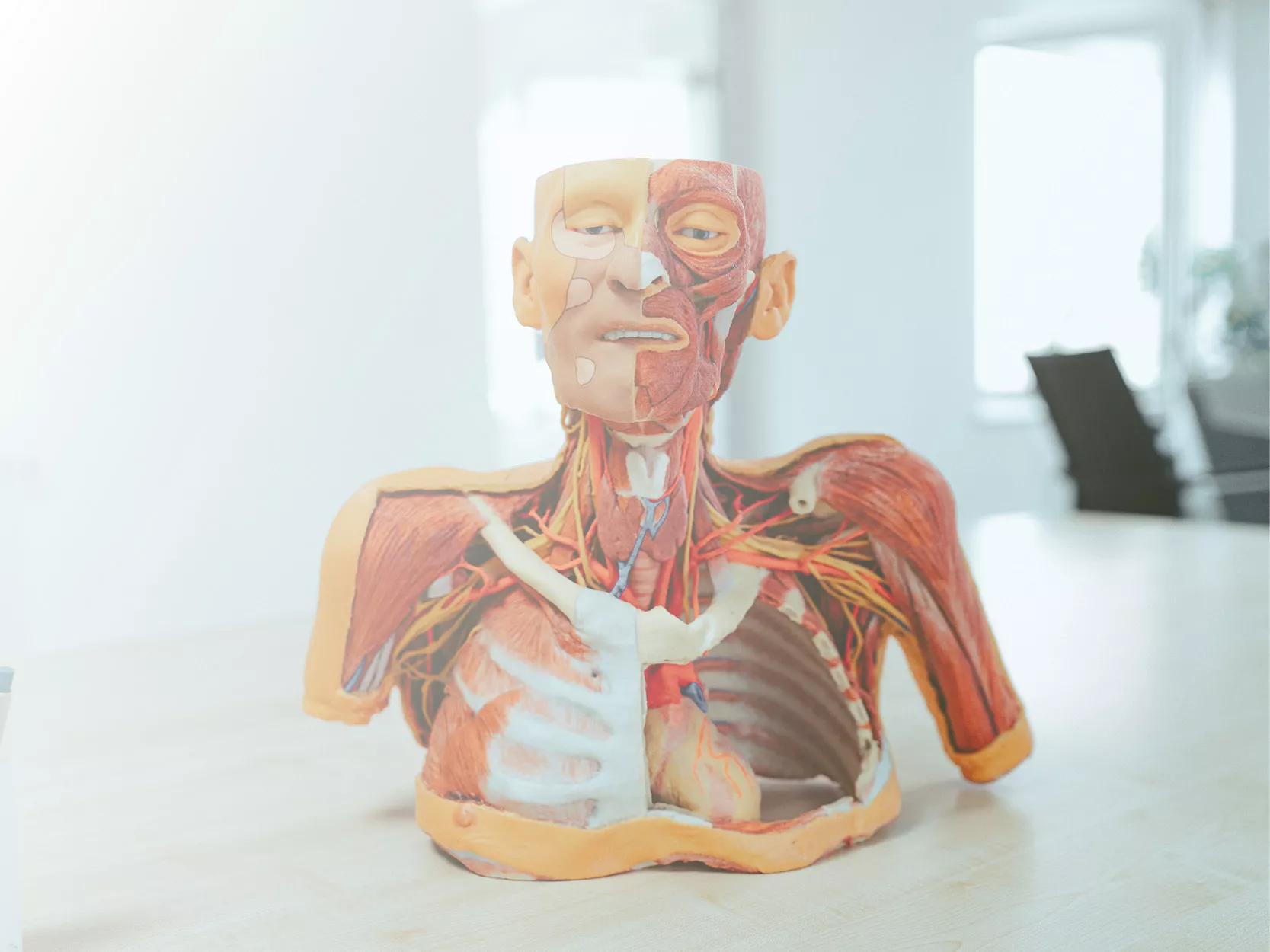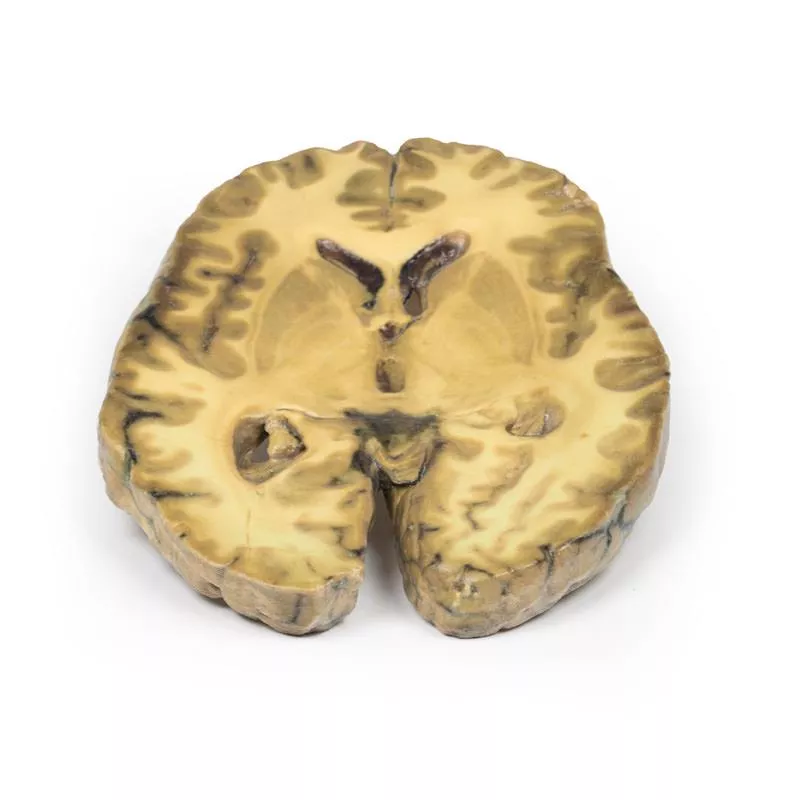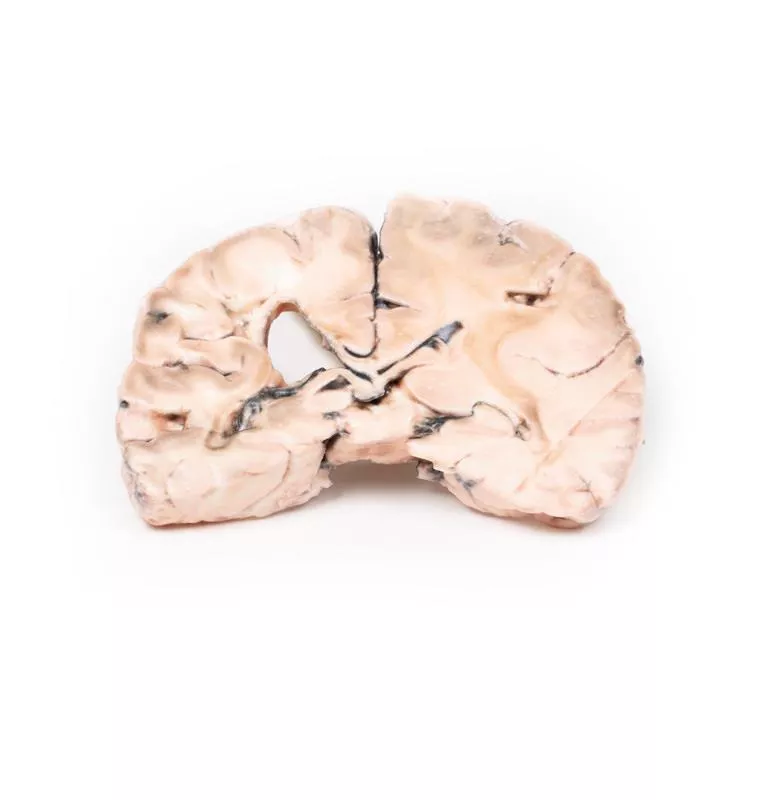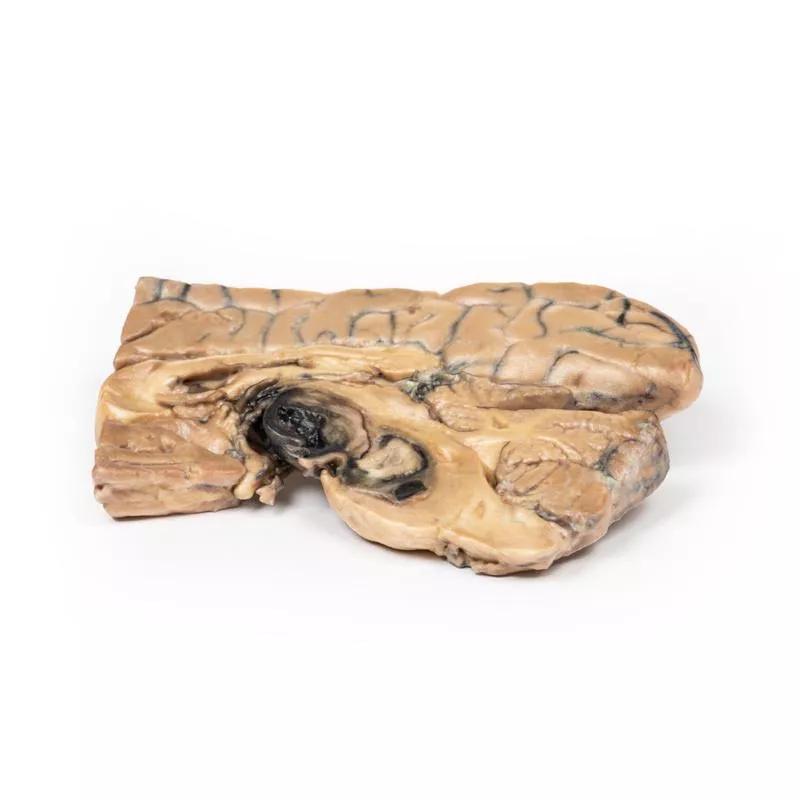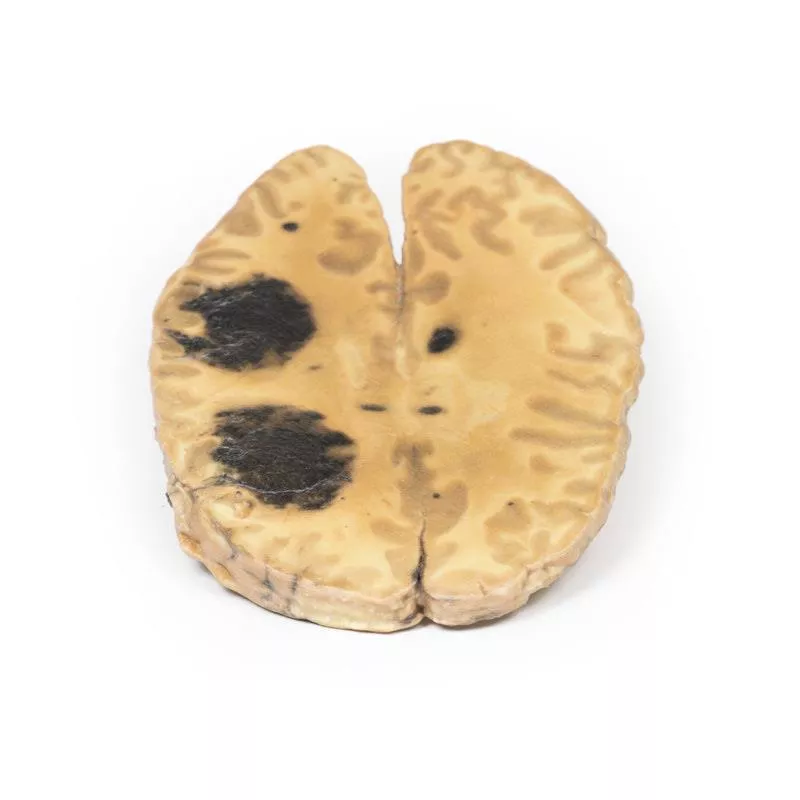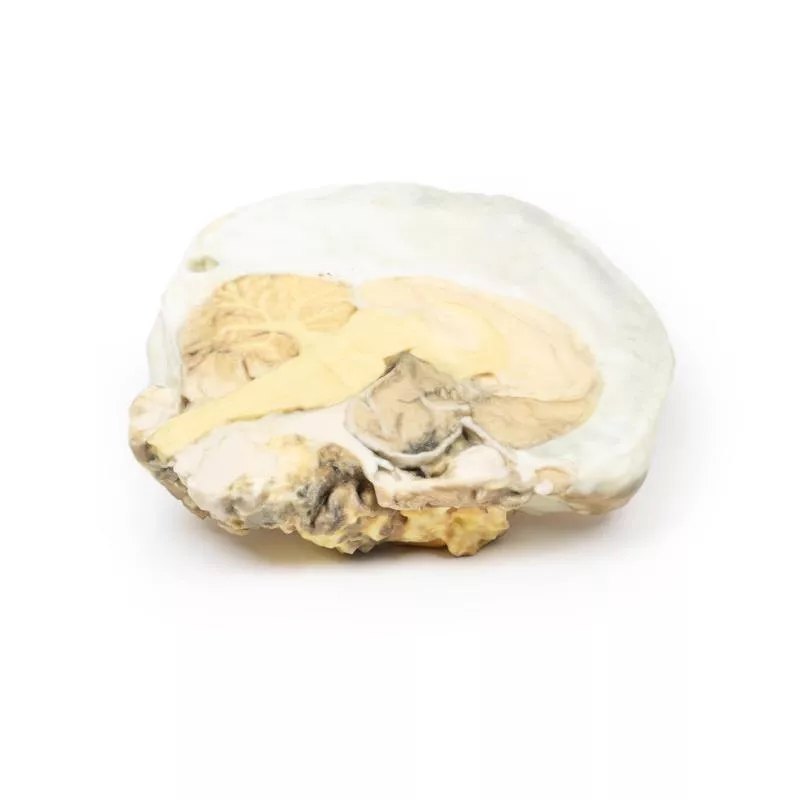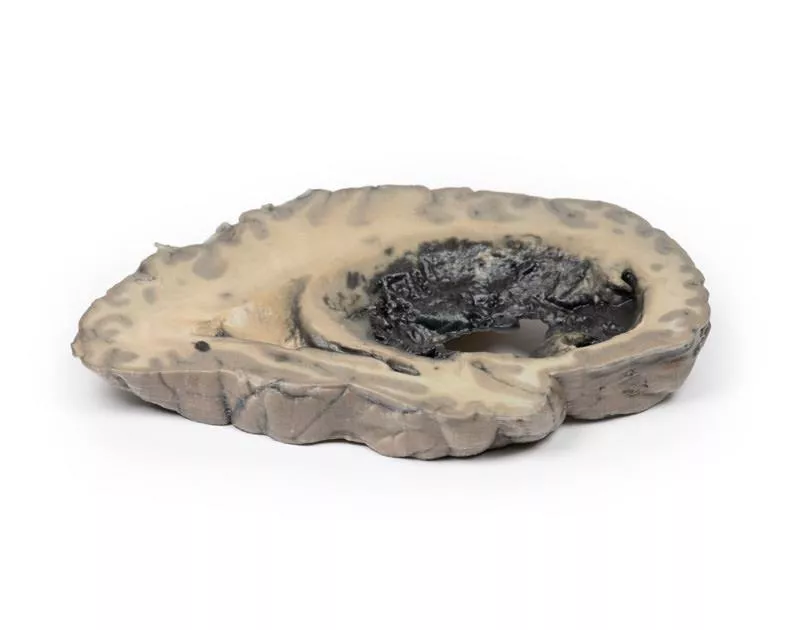Produktinformationen "Glioma grade 3-4, causing papilloedema"
Klinische Vorgeschichte
Die Patientin, 24 Jahre alt, stellte sich nach einem epileptischen Anfall mit einem auffälligen EEG vor. Sechs Monate später klagte sie über verschwommenes Sehen und Kopfschmerzen. Eine Ophthalmoskopie zeigte beidseitiges Papillenödem, jedoch ohne fokale neurologische Befunde. Bildgebende Verfahren ergaben eine raumfordernde Läsion, die als Gliom Grad III–IV diagnostiziert wurde. Trotz Bestrahlung entwickelte sie kurz darauf eine Schwäche von linkem Arm und Bein. Nach Aufnahme wegen Benommenheit und Erbrechen verstarb sie rasch.
Pathologie
Das Präparat zeigt einen großen intrazerebralen Tumor, der die Seitenventrikel sowie die inneren zwei Drittel der Capsula interna und Basalganglien rechts zerstört. Der Tumor infiltriert über das Corpus callosum und deformiert den Aquädukt. Er ist gut begrenzt, stark vaskularisiert und weist zahlreiche Blutungen und Nekrosen auf, was ihm ein geflecktes Aussehen verleiht.
Die Patientin, 24 Jahre alt, stellte sich nach einem epileptischen Anfall mit einem auffälligen EEG vor. Sechs Monate später klagte sie über verschwommenes Sehen und Kopfschmerzen. Eine Ophthalmoskopie zeigte beidseitiges Papillenödem, jedoch ohne fokale neurologische Befunde. Bildgebende Verfahren ergaben eine raumfordernde Läsion, die als Gliom Grad III–IV diagnostiziert wurde. Trotz Bestrahlung entwickelte sie kurz darauf eine Schwäche von linkem Arm und Bein. Nach Aufnahme wegen Benommenheit und Erbrechen verstarb sie rasch.
Pathologie
Das Präparat zeigt einen großen intrazerebralen Tumor, der die Seitenventrikel sowie die inneren zwei Drittel der Capsula interna und Basalganglien rechts zerstört. Der Tumor infiltriert über das Corpus callosum und deformiert den Aquädukt. Er ist gut begrenzt, stark vaskularisiert und weist zahlreiche Blutungen und Nekrosen auf, was ihm ein geflecktes Aussehen verleiht.
Erler-Zimmer
Erler-Zimmer GmbH & Co.KG
Hauptstrasse 27
77886 Lauf
Germany
info@erler-zimmer.de
Achtung! Medizinisches Ausbildungsmaterial, kein Spielzeug. Nicht geeignet für Personen unter 14 Jahren.
Attention! Medical training material, not a toy. Not suitable for persons under 14 years of age.





